US embassy relocation to al-Quds provocative act against Muslims, says Hamas
The Palestinian Islamic resistance movement, Hamas, has strongly condemned a recent decision by the United States to move its embassy to occupied Jerusalem al-Quds in May, describing the move as “provocative” for all Muslim and Arab nations.
“The measure to relocate the US embassy concurrent with the 70th anniversary of Nakba Day (Day of Catastrophe), when hundreds of Palestinians were forcibly evicted from their homeland by Israeli regime forces back in 1948, is a naked [act of] aggression against the Palestinian nation,” the Hamas spokesman, Abdullatif al-Qanou, told Press TV in an exclusive interview in Gaza City on Saturday.
He added, “It is also a provocative move against all Muslims and Arabs, and a clear attack against sites revered by both Muslims and Christians. Hamas believes that such a decision would fail to change the status quo of al-Quds.”

Qanou held the US administration and the Israeli regime “fully responsible for any repercussions of the recent unjust and racist decision against al-Quds” and criticized Washington’s hostile moves and schemes to “suffocate the Palestinian cause.”
“We are warning against a tremendous explosion in the Middle East region, which will target the occupying Israeli regime. We are calling on all Muslim nations to confront Israel and to stop such decisions,” the Hamas spokesman pointed out.
Meanwhile, Palestinian Authority spokesman Yousef al-Mahmoud has described the US decision to move its embassy in Israel from Tel Aviv to Jerusalem al-Quds as “offensive to the Palestinian and Arab nations, and a deliberate attempt to hurt their feelings.”
“The move constitutes a clear and blatant violation of the United Nations resolutions, and all humanitarian and international law,” Mahmoud said.

He added, “(US President Donald) Trump awarded our Arab holy city, which would be the capital of a future independent Palestinian state, to others. This step is unprecedented, and could only be explained through the arrogance of occupation and colonialism.”
Separately, Turkey's Foreign Ministry, in a statement released on Saturday, said the US decision to move its embassy to Jerusalem al-Quds was “very worrying,” and showed Washington’s insistence to disturb peace.

“Turkey will continue collective efforts with majority of the international community to protect Palestinians’ legitimate rights in the face of the US ... decision, which is extremely worrying,” the statement read.
US State Department spokeswoman Heather Nauert said on Friday that Washington planned to open its embassy in Jerusalem al-Quds in May.
The occupied Palestinian territories have witnessed a new wave of tension ever since Trump announced his decision on December 6 last year to recognize Jerusalem al-Quds as Israel’s capital and relocate the US embassy in Israel from Tel Aviv to the occupied city.
The dramatic shift in Washington’s policy vis-à-vis the city triggered demonstrations in the occupied Palestinian territories, Iran, Turkey, Egypt, Jordan, Tunisia, Algeria, Iraq, Morocco and other Muslim countries.
On December 21, the UN General Assembly overwhelmingly voted in favor of a resolution that calls on the US to withdraw its controversial recognition of Jerusalem al-Quds as Israeli “capital.”
In an attempt to avert the resolution, Trump had warned that “we’re watching,” threatening reprisals against countries that backed the measure, which had earlier faced a US veto at the UN Security Council.

Israel, however, rejected the world body’s resolution while thanking Trump for his decision to move the US embassy from Tel Aviv to Jerusalem al-Quds.
On January 18, the US reneged on a pledge to contribute $45 million to the UN Relief and Works Agency for Palestine Refugees in the Near East (UNRWA), which supports more than 5 million registered Palestinian refugees and their descendants.
The announcement to cut aid to Palestinian refugees came after the US president made a threat to cut off aid to the UN’s Palestinian refugee agency.
In a series of tweets on January 2, Trump said that the US paid “the Palestinians hundreds of millions of dollars a year” and yet got “no appreciation or respect.”
“But with the Palestinians no longer willing to talk peace, why should we make any of these massive future payments to them?” he asked.
Hot water and sewage: Palestinians share harrowing tales of torture in Israeli prisons
VIDEO | Thousands evacuated in Ethiopia amid earthquakes, volcanic eruption fears
Revealed: Israeli ministers eye restoration of illegal settlements in Gaza through genocide
How Los Angeles’ pistachio tycoons facilitated and profited from wildfires
Iraqi PM: Iran was in Syria to fight terrorism; presence requested by Damascus
Hamas: Israel's massacre in Jenin camp won’t break resistance
60 bodies recovered from abandoned South African gold mine: Police
Biden administration ‘quietly’ circumnavigating own ban on TikTok: Report




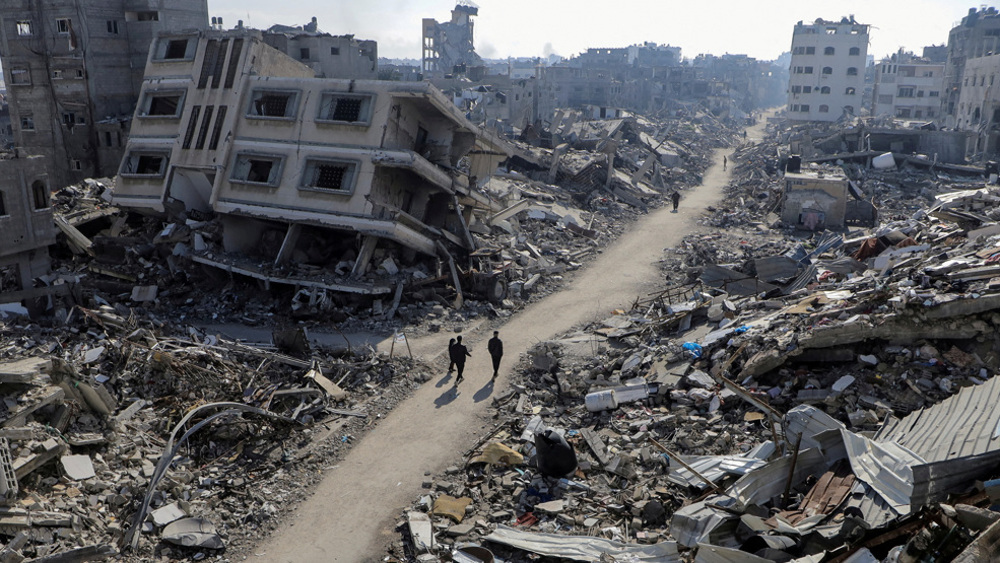




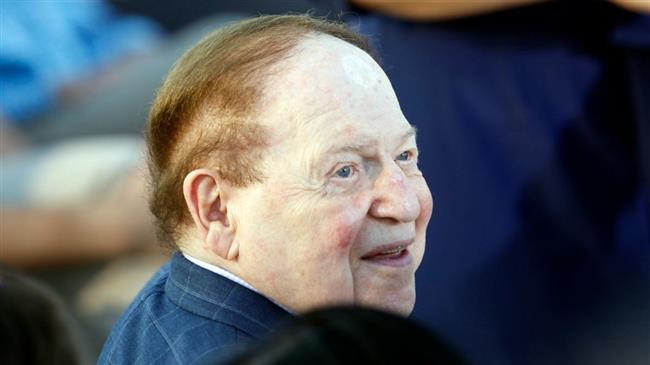
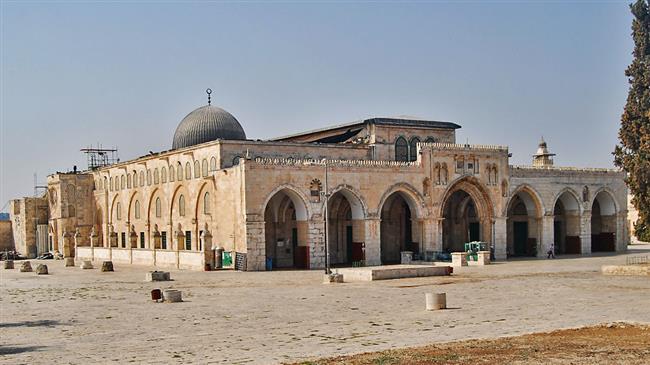




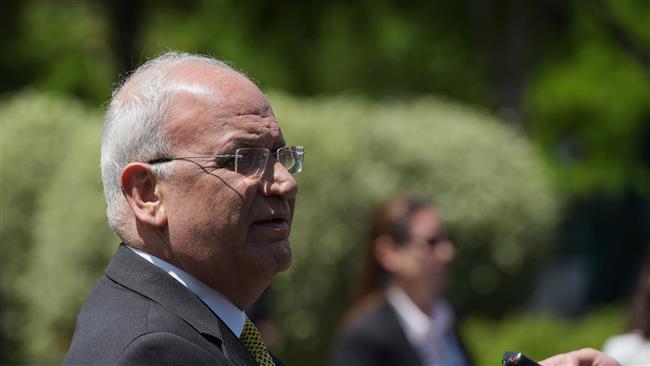
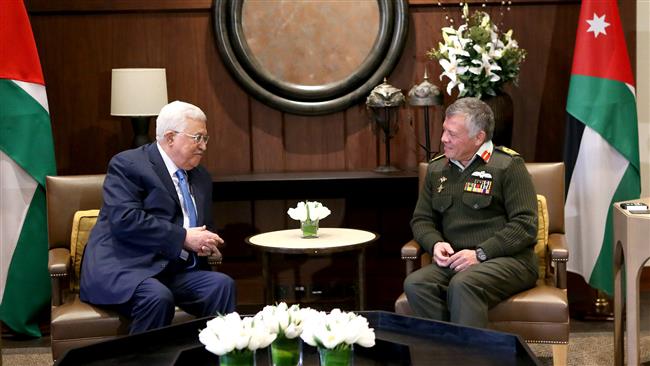
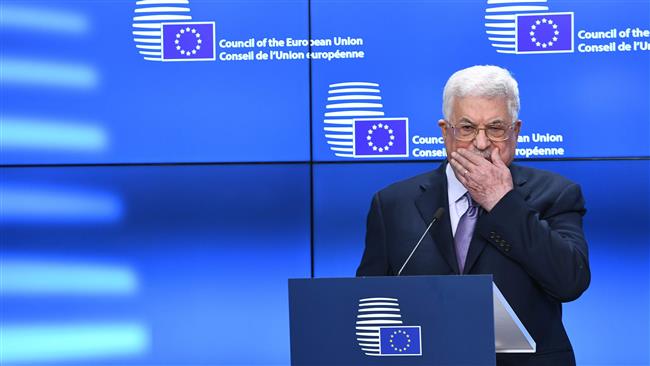

 This makes it easy to access the Press TV website
This makes it easy to access the Press TV website